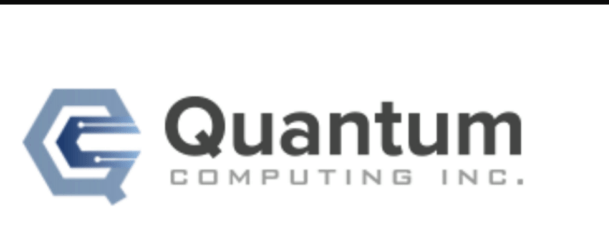Year-end commentary series: QCI on the quantum software challenge

As we wrap up 2021 and begin 2022, IQT News is asking executives from several companies across the quantum sector to weigh in on the state of the industry, key challenges that remain and visions and hopes of the future.
The latest entry in this series comes from an interview IQT recently conducted with Steve Reinhardt, vice president of product management at Quantum Computing Inc (QCI). The company’s Qatalyst software was recently a finalist in the BMW Group/AWS Quantum Computing Challenge. During 2021, the firm also launched a QUBT University quantum training program, made a Qatalyst constrained optimization offering available on AWS, forged an agreement to work with Los Alamos National Laboratory on large-scale simulations, and became one of a handful of quantum companies to further its adventures with publicly-traded stock with it moved from the over-the-counter market to Nasdaq (You can find it in IQT’s Quantum Stocks Zone under the symbol “QUBT.”
As quantum processors have continued to advance over the past year, there also has been an increasing focus on software to program quantum hardware to tackle real-world problems. The next few years will witness an array of software firms releasing the programming languages, software developer kits, application programming interfaces and libraries to further these efforts.
For now, the focus is on finding developing software to make it easier for people in different fields to leverage the different quantum processors and hardware architectures available to solve their own unique problems.
“We’re still figuring out stuff in quantum computing, you know, like what a good native gate set is, what the right technology is,” said Steve Reinhardt, vice president of product management at Quantum Computing Inc (QCI). “We can see there are many different processors and richness of diversity of physical implementations–ion trapped, superconducting and others like neutral atom. So there’s tremendous richness of architecture and implementations. And we’re trying to sort out what’s a good machine independent API at the same time, and sort out how to enable people to be productive at a high level.”
For the time being, there will continue to be many different hardware approaches, he added, which means that software companies will need to make it easier for users to try their use cases on different processors without having to laboriously rewrite code for each one.
“It’s hard to know if something like trapped ion or something else could become dominant,” he said. “Part of what we see as the value of higher level software is the ability for a user to say, ‘I have a project – a logistics problem just to pick one – I don’t really know quantum computers. I don’t know whether an Ion Q processor is better for this than a D-Wave or Rigetti processor or whoever your favorite vendor is.’ And, and they’re going to want to say, ‘I’ve expressed it to you in a way that enables it to run on a quantum computer or on a classical quantum hybrid simulator, so please run it on this list of QPUs and see where it runs fastest.”
Certain processors and software may become associated with certain problem classes, like constrained optimization problems, for example. Increasing numbers of quantum computing users across different fields in the years to come will force that sort of adaptation to occur at the software level.
“Users are just going to insist on this,” Reinhardt said, because otherwise the need to rewrite code will cost users weeks or months of project time.
There are currently dozens of big and little companies developing quantum software of one kind or another, and the array of use cases and problem classes to be targeted is broad and growing so quickly that it is difficult to envision one software company becoming dominant anytime soon in the way that Microsoft or Oracle, for example, rose to dominance during an earlier era of computing.
“The reality of software these days is that everyone would like to be in a position where their capabilities, their technology is indispensable,” Reinhardt said. “It’s entirely possible that a dominant platform arrives, but I think delivering compelling value for a problem class–and by that I mean, constrained optimization or machine learning or quantum simulation, something like that–that by itself is not going to be easy. Any company is going to be challenged to do that effectively within any one of those areas. And so to have one company emerge that is dominant across multiple problem classes? It’s conceivable, but that seems like a stretch.”



















